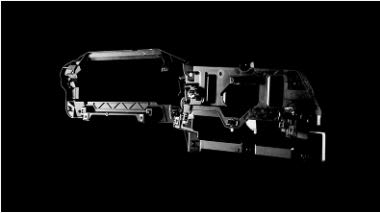dkjfnvfd
Electrical
- Apr 18, 2020
- 29
Hi chaps,
Just wondering if I could get some independent people to confirm my thinking about a problem?
I have a "temporary" installation that's been deployed for the last 1.5 years since the proper charger and battery failed. It's always been slightly undervoltage at about 116V for 9 x 12v batteries (so should be on float of around 9 x 6 x 2.25 ~= 121.5V), the supplier of the temporary installation pointed out the low voltage would lead to premature sulphation and have mentioned it in all of their 3M maintenance reports. The sulphation makes sense to me because even a small undervoltage will accumulate a lot of debris on the weakest cell over a long period of time. I gather that debris will only accumulate on the undervoltages parts of a battery cell, so the maximum possibly reduction in capacity is a reflection of the reduction in float voltage, but again, without substantiation I would be inclined to mark this system down as "not good enough".
In the last 6 months the impedance measurements of the blocs has gone totally off the charts, from something in the 1 - 3 mOhm range to literally off the charts (>10 Ohm).
I've flagged this with the "responsible" engineer and he seems to be putting up a fight. He says the undervoltage is not a problem and it cannot be sulphation, and he autonomy tests the batteries himself to prove they're safe. Now, he won't let me see the batteries, he won't let me take my own measurements, and he says the problem is the maintenance contractor must not be measuring the impedances properly themselves.
My gut feeling is that I should be quite worried about somebody trying to autonomy test batteries that have internal impedances that have already increased by more than 10,000% and I have asked him if he knows the load current going through the blocs, the response has been "I didn't notice any heat during autonomy". My thought is that a successfull autonomy (NOT discharge test) test is not that useful at telling you if something will work the next day, and if we don't get a handle on this system now when it's already clearly in a bad state then next time it's really needed it could either open circuit or blow.
Just wondering if I could get some independent people to confirm my thinking about a problem?
I have a "temporary" installation that's been deployed for the last 1.5 years since the proper charger and battery failed. It's always been slightly undervoltage at about 116V for 9 x 12v batteries (so should be on float of around 9 x 6 x 2.25 ~= 121.5V), the supplier of the temporary installation pointed out the low voltage would lead to premature sulphation and have mentioned it in all of their 3M maintenance reports. The sulphation makes sense to me because even a small undervoltage will accumulate a lot of debris on the weakest cell over a long period of time. I gather that debris will only accumulate on the undervoltages parts of a battery cell, so the maximum possibly reduction in capacity is a reflection of the reduction in float voltage, but again, without substantiation I would be inclined to mark this system down as "not good enough".
In the last 6 months the impedance measurements of the blocs has gone totally off the charts, from something in the 1 - 3 mOhm range to literally off the charts (>10 Ohm).
I've flagged this with the "responsible" engineer and he seems to be putting up a fight. He says the undervoltage is not a problem and it cannot be sulphation, and he autonomy tests the batteries himself to prove they're safe. Now, he won't let me see the batteries, he won't let me take my own measurements, and he says the problem is the maintenance contractor must not be measuring the impedances properly themselves.
My gut feeling is that I should be quite worried about somebody trying to autonomy test batteries that have internal impedances that have already increased by more than 10,000% and I have asked him if he knows the load current going through the blocs, the response has been "I didn't notice any heat during autonomy". My thought is that a successfull autonomy (NOT discharge test) test is not that useful at telling you if something will work the next day, and if we don't get a handle on this system now when it's already clearly in a bad state then next time it's really needed it could either open circuit or blow.





![[lol] [lol] [lol]](/data/assets/smilies/lol.gif)
